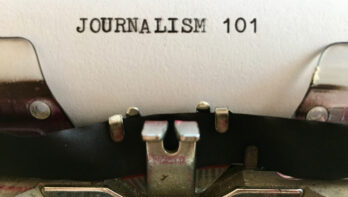For most of my working life I have carefully avoided writers groups. All too often, I felt, they were the blind leading the blind. No doubt that’s inaccurate and unkind and lacking in the grace of humility. Many fine writers have found encouragement and sustenance from meeting with other aspiring writers. And I have great respect for experienced writers who attend these gatherings to nurture the novice who may be tomorrow’s Elisabeth Elliot or Walter Wangerin.
My problem is with those, with or without much talent, who prefer to talk about writing but never do it. Many of these well-meaning souls glibly offer uninformed criticism, and the new writer doesn’t know that his critics don’t know.
As I’ve glanced through evangelical publications, I’ve noted that most of the writing, including some of the best, is done by academics, pastors, teachers, homemakers, doctors, managers and all sort of folks for whom writing is a secondary discipline. They are not professions. They write because they like to write. The word “amateur,” you probably know, comes from the Latin amator, meaning “lover.” An amateur is one who does something for the love of it.
All this is to say that editors have a responsibility to care for and feed young writers. It’s all too easy to take a manuscript that has good content but lacks style and polish and finish the job ourselves. Or to reject the manuscript with the hint of possibilities because of all the work it would take. Or to take the path of many publications and reject outright unsolicited writing. Training takes time. Analyzing a piece of writing and explaining its shortcomings to a writer often takes longer than doing it ourselves, and we live in the shadow of deadlines. Yet the most regarding part of editing may be to see a struggling writer develop under our patient tutelage.
A number of years ago I dashed off an article as a favor for a friend who was a competent editor. The next day she came to my office with “a few suggestions.” Would I change the introduction? Could I beef up my second and third points? Would I mind cutting out these paragraphs? And what would I think of changing the entire point of view? After a moment of spontaneous combustion, I realized she had done me a great favor. I had learned some valuable lessons from an editor who was doing her job and who cared about writers, new ones and old ones.
Someone once asked Flannery O’Conor if she though universities stifle writers. She replied that as far as she was concerned, they didn’t stifle enough of them. We laugh at that while we groan at the quality of the prose that crosses our desk. The good editor, however, is the one who spots a bud of talent among the briars of verbosity and who carefully cultivates and waters it until it blooms.
— by Ron Wilson
Wilson is former executive director of EPA.





